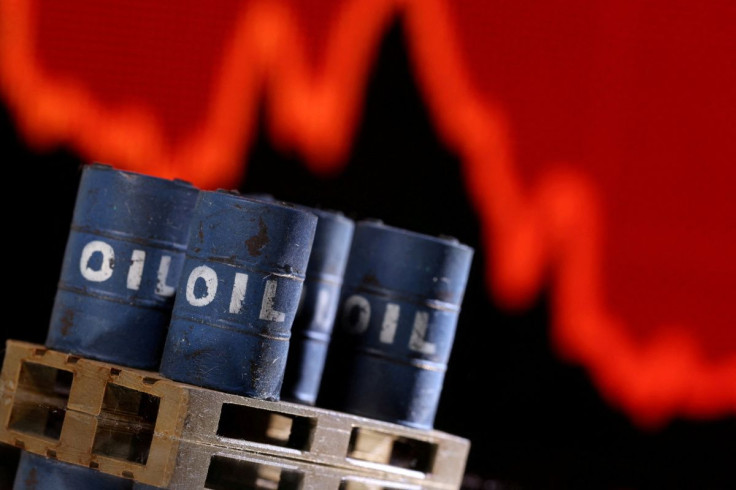Asian Shares Struggle, Oil Edges Lower As Ukraine Worries Linger

Asian shares were volatile on Thursday and oil prices turned lower as the latest developments in the Ukraine war and more hawkish comments from U.S. Federal Reserve officials left investors uneasy.
MSCI's broadest index of Asia-Pacific shares outside Japan recouped some of its earlier losses to be off 0.34%, on the day, with Chinese stocks leading the declines.
Hong Kong's Hang Seng Index fell 0.3% while the mainland's blue-chip index slid 0.6%.
Japan's Nikkei, however, reversed losses to gain 0.25% and end the session at a nine-week high, buoyed by a retreat in crude oil and buying into the end of Japan's fiscal year this month. [L2N2VR0D6]
"It is still a relatively volatile market, (which) suggests that these ripping moves in stocks ought to be treated with caution," said Kyle Rodda, an analyst at IG markets.
European markets are set for a stronger open, as indicated by early futures trading. The pan-region Euro Stoxx 50 futures were up 0.29%, German DAX futures rose 0.25% and FTSE futures were up 0.2%.
E-mini futures for the S&P 500 rose 0.4%.
Driving some of the volatility, Federal Reserve policymakers on Wednesday signalled they stood ready to take more aggressive action to bring down runaway inflation, including a possible half-percentage-point interest rate hike at the next policy meeting in May.
This pushed all three main U.S. share benchmarks 1% lower overnight. [.N]
"We expect limited upside to U.S. equities. The Fed is clearly prioritising fighting inflation, and while not our base case, risks of stagflation have increased," said analysts at Barclays in a note on Thursday.
Geopolitics is also top of the mind, and U.S. President Joe Biden is due to attend an emergency NATO summit later in the day. Biden will meet with G7 leaders and address leaders of the European Union, with markets on the lookout for any escalation of sanctions on Russia.
Russia President Vladimir Putin said on Wednesday that Moscow, which calls its actions in Ukraine a "special operation", will seek payment in roubles for gas sold to "unfriendly" countries, jolting energy markets.
However, crude prices on Thursday gave up earlier gains in volatile trading as investors assessed the potential for new supply in the tight markets amid prospects of a new Iran deal. [OR/]
EU leaders are also expected to agree at a two-day summit starting on Thursday to jointly buy gas, as they seek to cut reliance on Russian fuels and build a buffer against supply shocks, but the bloc remains unlikely to sanction Russian oil and gas.
Brent futures were down 58 cents, or 0.48%, at $121.02 a barrel and U.S. West Texas Intermediate futures fell 96 cents, or 0.84%, to $113.97 a barrel at 0502 GMT. The contracts rose $2 and $1, respectively, in early trade.
The bond market, meanwhile, paused for breath with the yield on benchmark 10-year Treasury notes last at 2.3444% in Asian trading, after retreating from a nearly three-year peak of 2.4170% overnight.
The two-year yield, which is more sensitive to traders' expectations for the Fed funds rate, stood at 2.1366%, down from an almost three-year high of 2.2020% reached Tuesday.
In the currency markets, the U.S. dollar found some support as commodity currencies took a breather from a steep rally driven by rising prices for exports, though the steadier U.S. bond market offered little solace to the struggling yen. [FRX/]
The yen had hit a six-year low of 121.41 on Wednesday as rising U.S. yields and a deteriorating trade balance sucked cash out of Japan.
Gold was slightly lower, trading at $1,942.9 per ounce. [GOL/]
(Editing by Kenneth Maxwell and Muralikumar Anantharaman)
© Copyright Thomson Reuters 2024. All rights reserved.




















